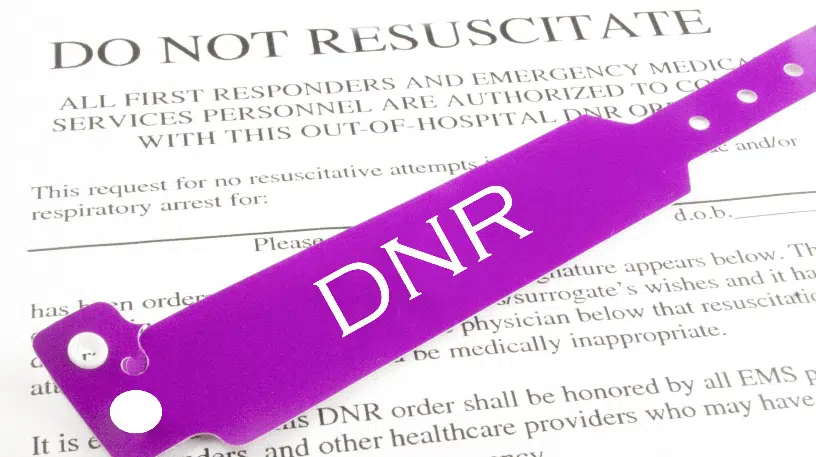When an unconscious patient was admitted to the hospital with a “Do Not Resuscitate” tattoo on his chest, doctors knew they were facing an unusual dilemma.
To Resuscitate or Not to Resuscitate.
In 2012, the Journal of General Internal Medicine outlined the “Cautionary Tale” of a 59-year-old patient who had a “D.N.R.” tattoo across his chest but expressed his wishes to be resuscitated in the event of a cardiac or respiratory arrest. When asked why he had the tattoo, the patient explained that he had “lost a bet playing poker while inebriated in his younger years”. The patient further declined a tattoo removal as he did not think anyone would take his tattoo seriously.
He declined.
Seriously?
The New England Journal of Medicine outlined a comparable case in 2017. A 70-year-old man was brought into an emergency room in Florida with the words “Do Not Resuscitate” across his chest along with a signature. The word “Not” was underlined.
Faced with an ethical and legal dilemma, the medical team struggled for answers. The hospital’s ethics consultants advised the doctors to “honor the patient’s do not resuscitate tattoo” as it was “most reasonable to infer that the tattoo expressed an authentic preference”, and that the law is “not nimble enough” to respect the best interests of the patient.
To everyone’s relief, the patient’s hospital documentation confirmed his tattooed wishes. Unfortunately, the patient status deteriorated and he died without life-saving measures leaving us with the same burning question: Is a D.N.R. tattoo a true representation of a patient’s current intent? Is it legally binding? Does it prevent a health care provider from proceeding with life-saving measures?
Ok. Questions: plural.
A Living Will
It might not allow for as much of an artistic expression as a tattoo would, but a Living Will is your best bet when considering end-of-life instructions on medical treatments.
In Ontario, a Living Will, Advance Health Care Directive and Proxy are documents where a person expresses his or her final wishes for end-of-life medical care should he or she become mentally incapable or unable to communicate consent or refusal for medical treatments. These documents set out instructions as to what health treatments may or may not be administered, and can include both positive and negative directions as well as a terminal condition.
The person can direct to be allowed to die with dignity and not be kept alive by medications, artificial means or “heroic measures” if and when there is no reasonable expectation of recovery from a physical or mental illness. Alternatively, the person may express his or her choice to be kept alive using all possible means and measures.
The Attorney for Personal Care is the person called upon to make a decision on behalf of the incapable person as to the giving or withholding of consent to a proposed treatment. The powers and duties for an Attorney for Personal Care are set out in the Substitute Decisions Act and the Heath Care Consent Act and must be exercised diligently and in good faith.
The attorney for Personal Care’s role is to be a substitute decision maker. The attorney for Personal Care makes decisions in accordance with the wishes of the incapable person as provided in the Living Will. Where the incapable person’ wishes are unknown or not possible to comply with, the attorney must act in the incapable person’s best interests to the extent permitted by law.
In conclusion, when considering end-of-life measures, seek the advice of an experienced lawyer, not that of a tattoo artist.
And when considering a tattoo, think twice.
Oumnia El Fadl is an Articling Student at Mann Lawyers LLP. For further information, please contact any member of the Wills and Estates team.







